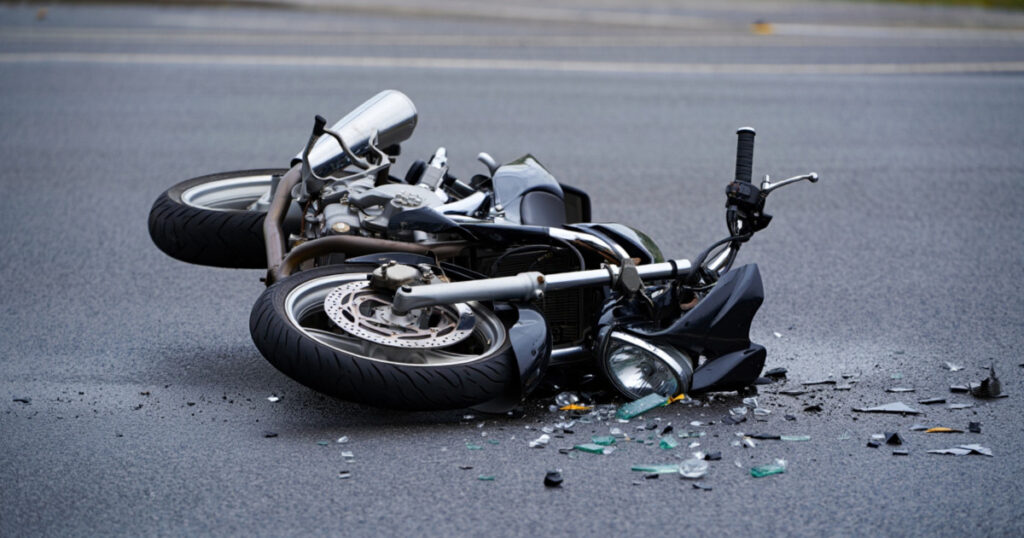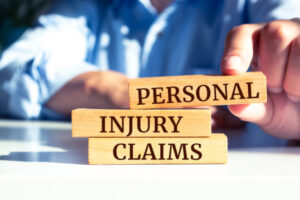Featured Article

When “Jake” (name changed) left his driveway one clear Saturday morning, he wasn’t expecting his life to change by lunchtime. A driver turned left in front of him without looking, and Jake had no time to stop. He woke up in the hospital with a fractured wrist, bruised ribs, and a wrecked bike.
The physical pain was bad enough—but what came next was worse. The insurance company questioned his injuries, the at-fault driver and that insurance company denied responsibility, and medical bills started piling up. Jake quickly realized that being the victim of a motorcycle accident didn’t automatically mean the system would treat him fairly.
Unfortunately, stories like Jake’s are all too common in Texas. If you’ve been injured in a motorcycle crash, you need to take the right steps early on to protect yourself, your rights, and your recovery. Here’s a clear, no-nonsense guide on what to do after a motorcycle accident—and when to call an experienced attorney like the Law Office of David M. Kennedy to help you through it.
Step 1: Get Medical Help Immediately (Even if You Feel Fine)
Motorcycle accidents are different from car accidents. You don’t have the same physical protection, which means injuries can be much more severe—even when they don’t show right away.
After a crash, adrenaline floods your body and can mask serious injuries like internal bleeding, concussions, or spinal damage. That’s why it’s so important to get checked out by a doctor immediately.
Go to the ER or an urgent care clinic, and make sure every symptom—no matter how small—is documented. This not only protects your health but also creates the medical record that your attorney will need later to prove the extent of your injuries.
Step 2: Report the Accident to the Police
Always call law enforcement to the scene, even if the other driver insists on “handling it privately.” The police report provides an official record of what happened, who was involved, and who may be at fault.
When the officer arrives, be polite and factual. Avoid guessing or assigning blame—just describe what you remember. If you’re too injured to talk, your attorney can later help you supplement the report with your statement once you’re stable.
Having this documentation is crucial. Without it, insurance companies can twist the facts or claim there’s “not enough evidence” to support your case.
Step 3: Gather Evidence (Safely and Thoroughly)
If you’re able, take photos of the accident scene before vehicles are moved—your bike, the other vehicle, road conditions, skid marks, and any visible injuries. If you can’t do this yourself, ask someone you trust to do it for you.
Get the other driver’s contact and insurance information, and collect names and phone numbers of any witnesses.
Your attorney will later use this evidence to reconstruct what happened and prove negligence. Remember: small details matter. Something as simple as a photo of a traffic sign or weather condition can make a big difference.
Step 4: Notify Your Insurance Company (Carefully)
You’ll need to inform your insurance company about the accident, but be cautious about what you say—because the statements to your own insurance company can be obtained later if a lawsuit is filed. If the other driver’s insurer calls you, get a name and number but DO NOT give a recorded statement or discuss the accident or your injuries.
Insurance adjusters are trained to minimize payouts. They may sound friendly, but their goal is to get you to say something that weakens your claim. Again, avoid giving recorded statements or speculating about injuries until you’ve spoken to an attorney. They will not – no matter what they say – pay your medical bills without you agreeing to settle your claim first.
At the Law Office of David M. Kennedy, we handle communication with insurers for our clients. That way, you don’t have to worry about saying the “wrong thing” or being pressured into a low settlement.
Step 5: Keep a Detailed Record of Your Recovery
Start a simple journal where you record your pain levels, doctor visits, and how your injuries affect daily life. Include missed workdays, lost wages, and any emotional distress you experience.
This information helps your lawyer show not only the medical costs but also the real impact the accident has had on your life. Motorcycle accident claims are about more than just bills—they’re about fairness and accountability.
Step 6: Don’t Settle Too Soon
It’s common for insurance companies to offer a quick settlement right after a crash. They know you’re stressed, hurting, and worried about expenses. But once you accept that check, your case is closed—even if you later discover long-term injuries or complications.
Before agreeing to any settlement, consult with a personal injury attorney who understands motorcycle accident law in Texas. An experienced lawyer can calculate the true value of your case, including future medical needs, pain and suffering, and lost earning capacity.
Step 7: Call an Experienced Motorcycle Accident Lawyer
Filing a personal injury claim after a motorcycle accident in Texas can be intimidating. You’re dealing with pain, confusion, and an insurance system designed to protect companies—not victims. That’s where the Law Office of David M. Kennedy comes in.
With decades of experience representing the injured across North Texas, David Kennedy knows how to cut through red tape, counter insurance company tactics, and fight for full and fair compensation. His team handles every step—from gathering evidence to negotiating with adjusters—so you can focus on healing.
You don’t have to face this alone. The sooner you have an attorney on your side, the better your chances of protecting your rights and securing the recovery you deserve.
Final Thoughts
A motorcycle crash can turn your world upside down in seconds. Between medical bills, missed work, and insurance pressure, it’s easy to feel lost. But you don’t have to navigate it on your own.
At the Law Office of David M. Kennedy, we’ve helped countless Texans stand up to insurance companies and rebuild their lives after devastating motorcycle accidents. We know what you’re going through—and we know how to help.
If you’ve been injured in a motorcycle accident in Texas, call us at (903) 819-0720 or Email today for your free consultation. We’ll listen to your story, explain your options, and fight for the justice you deserve.




